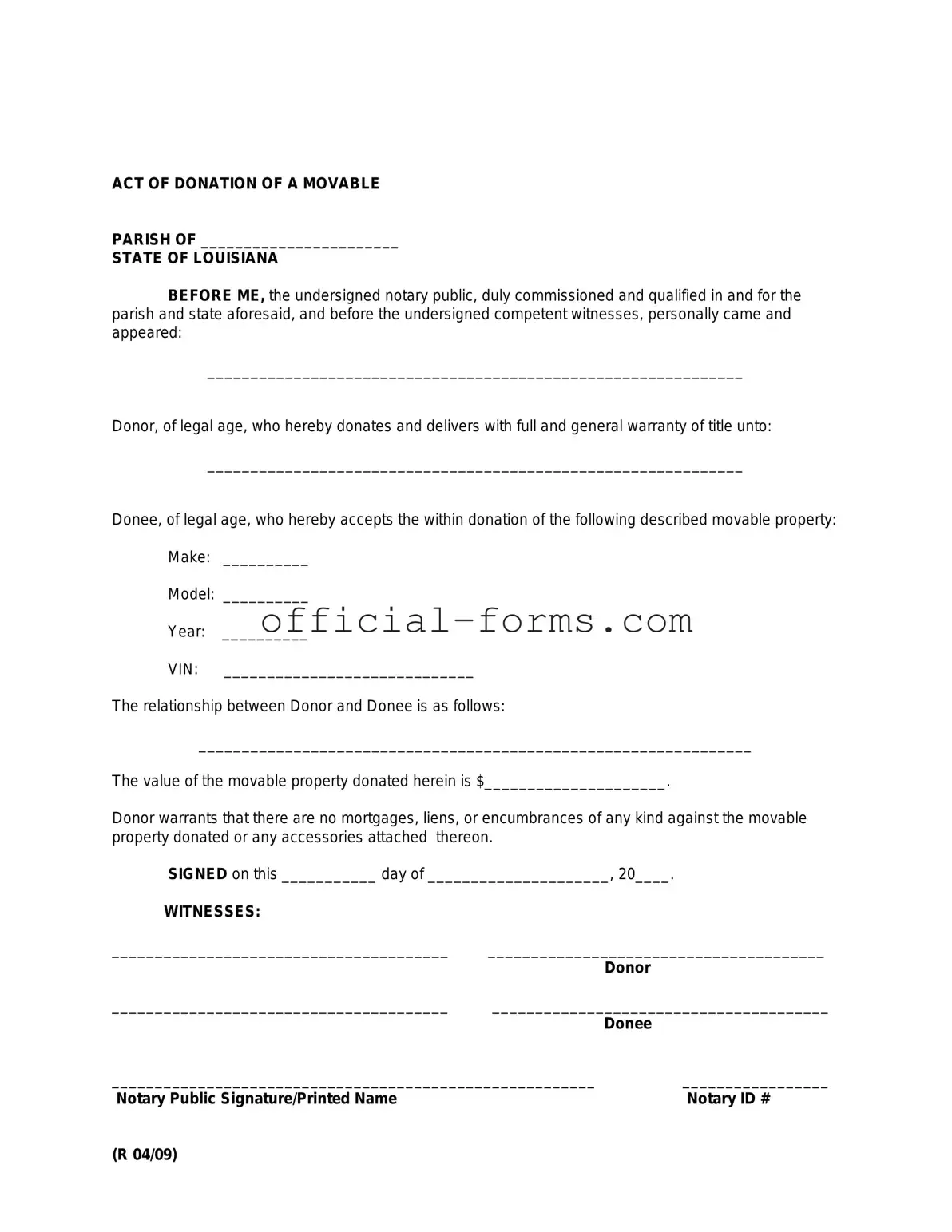Blank Louisiana act of donation Form
The Louisiana Act of Donation Form is a legal document used to transfer ownership of property or assets from one individual to another without any exchange of money. This form plays a crucial role in formalizing the donation process, ensuring that both the donor and recipient understand their rights and responsibilities. Understanding how to properly complete and utilize this form can help facilitate a smooth transfer of ownership.
Open My Louisiana act of donation Now

Blank Louisiana act of donation Form
Open My Louisiana act of donation Now
Don’t leave your form incomplete
Finish Louisiana act of donation online quickly from start to download.
Open My Louisiana act of donation Now
or
➤ PDF
